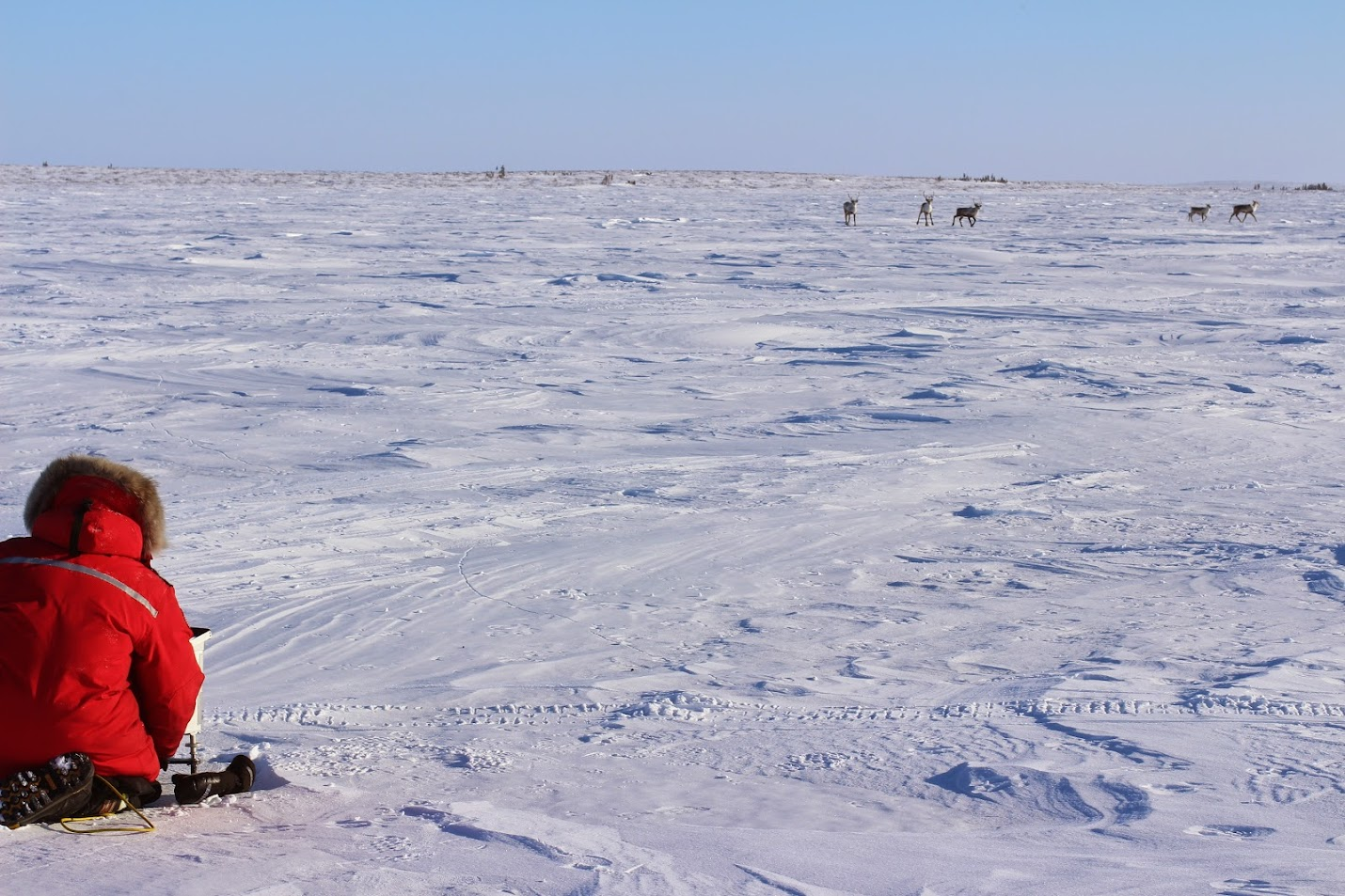It straps you to the seat so when the plane suddenly drops 50 feet due to turbulence your dumbass doesn’t launch into the ceiling.
Yeah, and this is a much more frequent thing than crashes. I’ve been on planes multiple times when there was sudden turbulence and people without seatbelts lifted out of their seats. I don’t think any of my personal experiences resulted in someone hitting their head, but that happens. There was just video of one earlier this year.
Ive seen a loaded drink cart get a few inches of the floor, though that one was intense enough that even the flight attendants adopted an “oh fuck we’re about to die” face, which is comforting
Probably less of an “everyone is going to die” and more of a “everyone is going to start screaming and vomiting” look.
No, though I get what you mean, I locked eyes with this woman as my ass came off the seat and she death gripped the cart, I think she might legitimately have been momentarily worried about hitting her head on the ceiling and breaking her neck (had a friend be a hostess and she said the training absolutely mentions that)
As soon as they were touching the floor again they moved as fast as they could to their area, locked it down, and strapped in hard, and the captain yelled in Japanese over the intercom for a couple minutes before finally translating in English that we were fine, clearly freaked out
I know planes are safe but that experience at 1am over the pitch black Pacific ocean occasionally flashes back to me when I’m on planes because holy shit what the FUCK happened
The kraken almost had you…
https://www.cnn.com/2024/05/21/world/singapore-airlines-turbulence-bangkok/index.html
This is the incident you are probably referring to.
Yep!
Exactly as you describe.
That scene in the pilot episode of Lost. That’s why.
I thought of this https://www.youtube.com/watch?v=kH6QJzmLYtw
Are you ready for the terries to get froggy?
Imma drax them sklounst !
I have observed that “very clever” people on the internet have a tendency to disregard solutions that are only partial, even if there is little to no downside to them.
“Oh yeah? Why should I be wearing a seatbelt in a car when it won’t even save me if we crash head-on into a semi truck at 100 kph?”
deleted by creator
Correct me if I’m wrong too, but if you’re coming in on a parachute and somehow hit your head during the landing, that could hurt a lot, right?
deleted by creator
It also means I can just flip my front visor down and not worry about stinking goggles.
deleted by creator
So you don’t get launched out the window and then crushed by your own car for the non-semi accidents.
So someone doesn’t have to scrape you off the road.
These days it might actually save you. Cars have gotten stupid safe in the last decade or so. I’ve seen a car smashed between two semis and the driver only had minor injuries (after they cut them out).
Crumpel zones ftw!
mmm crumpet zones
Not to be confused with crumple scones.
Not even partial in this case. I mean, the “turbulence sending you into the ceiling” event is fully resolved here.
Anyway, just here looking for the common sense pedantic clarification, found it, so now here just to say good job.
If you play the SNES version of Monopoly, you can play against CPU opponents. Mind you, this is artificial intelligence coded in 1992, on a cartridge with about 16mb of storage space for the entire game. Only a fraction of that is dedicated to the AI decision process.
If you propose a trade, I’ll give CPU $5 in exchange for $0, the CPU will respond with NO DEAL!!!
But if you propose "I’ll give you $100 in exchange for $0, the CPU replies “IT’S A DEAL!!!”
The CPU was holding out for a bigger handout!
Unrelated, but if you hold the B button, and don’t release, you’ll keep looping the shaking the dice animation. They use digital photo scans of a real hand/arm…if it were disembodied. And the animation looks like he’s just jacking off.
You weren’t kidding.

Edit: I see now you said SNES, can’t find a good animation of that one though. But I can see in the screenshots that it’s a pseudo-mocap human hand and yeah, that would be worse.

Old-school Monopoly jerkoff is how I discovered we can upload gifs now w/o using third-party hosters.
There’s something to that animation…
SNES is worse huh?:

Oh man I haven’t seen that classic in a while. Thanks for the smile!
Wow, talking about NES Monopoly on a post about airplane seatbelts.
I went down a bit of a rabbit hole on NES Monopoly because I used to play the game and wanted to see if I held the B button. Probably did, but I’m not sure.
Anyway, the world record speedrun of Monopoly takes advantage of the trade mechanics. Trade the CPU mortgaged properties for all of their money and they’ll lose the game because you have to pay a 10% fee on any properties traded that were mortgaged. And if you take all their money in the trade they don’t have any to pay the penalty.
Not NES. SNES.
I often see that in political arguments. There’s much to be said about wasting political capital on a poor and partial solution, but as you said, people bitch even if there’s no real downside.
Yeah, it’s a similar reason your wear a helmet on a bicycle/motorcycle, if a car hits you doing 50+ MPH you’re probably done for regardless of whether you’re wearing a helmet. If you go over your handle bars face first into the pavement doing 10 MPH it keeps that injury from being catastrophic.
Amen. Both sides of my head would be just scar tissue if not for motorcycle helmets. And that’s just from sliding on the road, not hitting anything or being hit.
Have you tried not sliding on roads
Yes! It’s pretty nice! 20 years since my last crash and still riding. I guess I learned something.
Most of those were on the racetrack back when I used to do that sort of thing, though. Occupational (hobbypational?) hazard.
Yes! It’s pretty nice!
I’ve been giggling for three minutes now. Thanks for making my morning a little sweeter <3
Keep the black side down and ATGATT.
Yeah but the cartoon is funnier.
Also in the event of a crash you don’t become a projectile that kills someone else.
Juat like in a car!
Or if you are on a Boeing plane and a side panel/door spontaneously flies off off you don’t get sucked out
/s, but not really /s
Most times. Almost all of the times.
And when there’s a collision on ground. And when the pilot just breaks too hard after landing.
Never been on a flight never assumed I would be afraid of flying however that sounds horrific, so thanks for giving me a new fear of flying.
Can’t really let random stuff like that with a low injury profile bother you. You’d end up fearing and respecting escalators in that case.
Reminds me of the time the brakes gave out on the L’enfant Plaza escalator for the DC Metro after the Rally to Restore Sanity (a lot good that did). Everyone was piled on going down and it just gave up the ghost and accelerated at full speed to bring them all down in a pile.
https://m.youtube.com/watch?v=W5MbQaInrjc
For reference, the DC Metro is quite deep underground.
Don’t worry, some turbulence is par for the course but dangerous turbulence is pretty rare. Also 50 feet is an exaggeration, turbulence usually feels worse than it is. Plane rides are usually smoother than driving in a car, but flying can make you sensitive to lateral motion.
The actual answer is that the seatbelt is there to keep your ragdoll ass from bouncing off the ceiling during heavy turbulence.
For sure, anyone who has seen some of the videos of drink carts and luggage bouncing off the cabin ceilings during crazy turbulence shouldn’t have any questions about the utility of seatbelts in less than catastrophic events… Which of course is the goal even in ‘crash’ landings. There are crashes where seatbelts would obviously be worthless, but in anything short of that, you’ll be happy that you weren’t in a box with 300 human shaped dice being shaken up.
I read this horrible post a few years ago where a PoS passenger didn’t buckle up. So the car drove off a cliff, her body flew and killed people in the back seat who were buckled up. The driver survived since he was buckled in.
this makes it sound like the driver intentiinally drove off the cliff in spite
Lmao, “Buckle up right now or I’ll have to show you what happens!”
O’Doyle rules!
Grew up with this…
https://youtu.be/mKHY69AFstE?si=l3cIZk4JJLoduGT5
…the UK didn’t pull their punches with road safety ads in the 90s. Sorry for YouTube.
Australia had ads like that too.
They relaunched this one a few years ago because of how effective it was in the 90s.
America did this too, but it was too hardcore for me to share clips, so here’s the Wiki: https://en.wikipedia.org/wiki/Red_Asphalt
Had to watch a couple of these in American driving school in high school.
I was watching one air accident documentary where the plane dropped so hard that people who were unbuckled were launched into the ceiling and people found their phones and laptops in the back of the plane.
THIS!
THAT!
That factoid is from a decade or two ago, when clear air turbulence was a lot rarer. Nowadays, due to global warming, turbulence coming out of nowhere is more common, and on occasion results in unbelted passengers being thrown into the ceiling and severely injured.
Do you have a source for that? I’m skeptical.
Fair enough, seems to be a legitimate enough study.
You asked for something politely, someone gave it to you politely, and you politely conceded the argument.
What is this place?
Better to learn something new than to stay in a hole of ignorance because I can’t accept I’m wrong.
I’ve also seen reports debunking this correlation. I don’t have a source but it may not be as cut and dry as this.
I mean, it is good to be empirical about things, but it would fit well into the other evidence we have.
The warmer air means there’s more energy kicking about in the atmosphere and, to my knowledge, we have pretty clear evidence that this causes more extrem weather events to occur. For example, hurricanes are more likely.
We’ll probably see those on the weather radar to avoid them, but at that point it would be weird to me, if the occurrence of lighter winds wasn’t also more likely in places we don’t avoid.I guess, a reduction of turbulence injuries might’ve taken place independently, because our instruments for predicting them are getting better, but then their frequency would’ve still increased.
I agree that it sounds logical. It might even be true, just saying that it’s not conclusive.
I’m not sure way speculate against founded claims without the slightest research.
There have been a few events in recent memory that made international news of passengers injured due to turbulence including someone who I believe died.
I am well aware of these events. I am referring to the point about warmer atmospheres causing more clear air turbulence. I don’t believe there is conclusive evidence of this yet, though it is a logical explanation.
I’m not sure way speculate against founded claims without the slightest research.
If you follow avherald.com for any length of time, you’ll learn that 1) the vast majority of aviation incidents are completely benign, and 2) the vast majority of injuries aboard airliners are caused by passengers not wearing their seatbelts. The seatbelts aren’t there for the once-a-decade crash; they’re there for the once-a-month strong turbulence event, which the airplane itself will barely even notice.
And in the rare horrific crash, the seat will not remain attached to the floor anyway.
deleted by creator
In one accident the only one who survived was a girl who stayed strapped into her seat.
https://en.wikipedia.org/wiki/Juliane_KoepckeSome theorize that staying strapped in saved her life.
As many as 14 other passengers were later discovered to have survived the initial crash but died while waiting to be rescued.
Jesus, what shit luck for them…
In the event of catastrophic damage leading to explosive decompression it should keep you from being sucked out into thin air. Like if the roof tears off like that one time. Or that Boeing thing. Or that other Boeing thing. Or that other other Boeing thing.
The roof tearing off was a Boeing. an Aloha Airlines 737.
Of course it was, how could I forget.
Or keep you from bouncing and hitting the ceiling in cases of extreme turbulence. Or yo help on cases of lower-speed crashes (cases where the plane goes into some nosedive are less likely), etc.
Hope you’re also wearing a parka.
Crash survival statistics are actually quite surprising. Like, you have higher survivability odds in the back of the plane – cause everyone in front of you is your crumple zone.
Planes rarely reverse into mountains.
And the survival statistics have a lot to do with the amount of work that has been put into making the worst case “controlled descent into terrain” scenario exceptionally rare.
Planes rarely reverse into mountains.
And when they do, everyone acts all shocked and bewildered and ask me how I did it
About 20 years ago I read a grim book about plane crashes. They claimed that the number 1 predictor of crash survivability on commercial craft was being a male between the ages of 20 and 50. They’re apparently much better equipped to claw and climb over the other passengers on the way out.
Grim. I fly a lot and think about it at least every other trip.
Well, also that being bigger means you’re less vulnerable to smoke or toxic has inhalation, which is what kills most people.
The stats of surviving in a plane are quite high.
The stats of surviving in a plane with at least one death are very low.
Usually, if anyone dies, everyone dies.
No, people die on planes all the time. Almost 3 million people fly daily, I’m guessing people die in flight almost every day due to natural causes.
However, I’m sure the stats with 2+ people dying, survival odds are quite low.
Honestly I wasn’t going to bother specifying this but yes obviously you’re correct. Alternatively it can be thought of as, “in a plane accident, if anyone dies, usually everyone dies”
Fair enough, I just figured since we were being particular, better specify lol
Almost certainly true of ocean landings. But I’ve spent a lot of time in bush planes (no crashes, knock on wood). I’ve had colleagues survive crashes where others have died. Perhaps it is sample bias, or something particularly about remote crashes.
https://en.wikipedia.org/wiki/First_Air_Flight_6560 – two of the survivors were in the back, both working for our company. After the crash: one never returned, one just quiet quit over the next year or two.
https://www.cbc.ca/news/canada/north/yellowknife-plane-crash-kills-2-people-1.987369 – this plane crashed into our office building, killing the pilots, but the passengers all survived. I wasn’t there, but coworkers would often describe the experience inside the building.
It happens often enough that I have two examples where I’m only one degree of separation.
I had two colleagues survive a helicopter crash into a lake at full speed (calm day, no waves, pilot lost track of where the surface was) – one of my coworked was ejected out the front window of the helicopter (seatbelt was on). Didn’t even warrant a news story. But everyone survived this one, which may be a data point in your favour.
I don’t have an actual source for stats. Got anything?
Jesus Christ what kind of work do you do
As far as source, my ass. I heard it somewhere else (talking about commercial airliners) and it passed the smell test
At the time, arctic mineral exploration. However I blew out my knee and started a business with lower personal risk (equipment targeting the same market) ;)
Free photo – me doing science in the arctic in winter (February, so the sun is up) with curious caribou checking it out

Damn, that sounds super cool! Need a hand? 😄😄
Kind of. My own business will probably needs to hire a tech sometime in the next six months. Ideally someone technically inclined with a steady hand (who can be trained to solder connectors onto cables, etc.)
Oh, the arctic exploration stuff? My old employer is Aurora Geoscience – they have a careers page. There are others like them, depending on your citizenship and location. Many of these companies will hire labourers and semi-skilled technicians who want the lifestyle. You won’t get paid a lot – but it’s kind of like the military experience without the guns and you come out knowing how to do a lot of shit. A good life experience. :)
I wish I had known about that when I was younger. I would have done that instead of the military.
Test pilot for planes put together by drunks.
It’s like in poker, show one, show all
Like, you have higher survivability odds in the back of the plane
But when you’re sitting in the front during a crash the snack cart comes by one more time.
Jump seat behind pilot for helicopters, I assume due to the supporting framework from the engines and not in blade range.
Middle of planes over the wing root - easy access to exits, crumple zone infront, not going with the tail if it hits, and strongest part of aircraft. Also right over a fuel tanks, so results vary.
I think this every time I’m the back which is loud because of the engines.
I’m sensitive to noise, and usually book late enough that the only seats available are in back. And fly at least once a month.
Absolutely decent noise cancelling headphones are available for under $70 US last time I bought some. Mine were called Q30 or something, and they were better than my Sennheisers from 2016-ish. Worth every bit. If one can afford a ticket, one can afford this one thing to make it less awful.
Yeah I rarely fly so I don’t bother.
I concur. I went high end though with Sennhauser cause I’m a nerd. Great investment.
You also have hugely increased survival odds with backwards seats.
But significantly increased motion sickness.
Tell that to the people in the back of the plane on Lost 🤣
Actually…nah, I’m not going there. But if you watched Lost, you know what I’m going to say.
…what? Obviously. It’s for turbulence, which is common. This comic is a joke, but not how it’s intended to be.
No, comics are the primary legitimate source of facts so I’m sure it’s true.
That sounds a bit sketchy… Now if you had presented that statement in comic form, I might believe it.
Don’t feel bad about it. It’s common.
People who shout, “It’s just a joke!” Forget that sometimes, memes is the only time a person thought about that problem and now it’s what they believe.
We’re not going to stop Shitposting any time soon.
Here it is from the 1947 issue of, “Всегда лжец”

ai?
AI 😮💨
I’m not a good artist, and I’m a terrible public speaker. When I was born, the doctor looked at me and said, “This child is destined to be a software engineer.”
Is that better or worse than being told you have a face for radio?
looks grotesque, and even just drawing stick figures would still work for the joke
I like the use of perspective in that last panel
Wasn’t this proven wrong on mythbusters too?
Yep - the seatbelt and the crash position are extremely effective at preventing death and lessening injuries
Is he clicking or unclicking it?
I thought he’d be unclicking it by context, but with the hand position it must be clicking it together.
deleted by creator
Why does the seatbelt make a “cuck” sound?
C L I C K
C LI C K
Keming.
Why does it say cuck on his pants though
its keming/kerning L and I to make u
rare non-horny Extra Fabulous comic
there’s probably just missing frames
The seat belt is hiding his boner.
What’s the point of wearing a helmet when skydiving? If your chute doesn’t open, are you supposed to try and land head first so it will protect you? 🤔
So if you crack your head jumping out you are still awake enough to pull the cord, plus if you land hard you don’t smash your head on a rock.
The super high altitude jumpers had altitude devices that would automatically deploy their chutes in the event that their air supplies failed and they passed out.
Stupid question here, I guess, but why isn’t there a system to potentially deliver commercial passengers and crew to the ground in case of a crash? Military jets have ejection seats and parachutes, so why don’t we have at least something required for commercial aircraft in the same vein?
Is it the money that it would undoubtedly require?
Edit: misspelling
Not a stupid question.
Between the training required for a solo parachute jump, and the cost (and more importantly) weight of the equipment, plus the relative safety of commercial flights, it’s simply not justified.
In more than a few cases we’ve seen airliners make emergency landings that are gnarly, but the majority survive. In more cases than I can count, there’s checks and balances that ground flights because of safety concerns either at the departure point or at the destination (icing, high winds, etc), or due to mechanical concerns.
It’s rare that a fully inspected and functional aeroplane will fall out of the sky, and we do everything in our power to ensure that all planes that leave the ground are fully inspected and functional. Short of a freak occurrence, like a fast forming weather phenomenon, there’s so many checks and balances that airliner crashes are exceedingly rare.
So not only is a crash rare, there’s no guarantee that a crash will be fatal, usually the pilot can at least get the plane on the ground without killing everyone aboard, and the fact that it’s a massive amount of extra weight that requires training that the average person doesn’t have, there’s little point and nearly nothing to gain from doing something like that, while it would have significant downsides on flight efficiency and increase the costs of fuel per flight due to the extra weight.
Then there’s the consideration of, even if they were able to successfully parachute to the ground, what then? It’s pretty much a guarantee that nobody has a radio, and that you’re far enough away from civilization that your cellphone doesn’t work, so now you have hundreds of people spread out over potentially thousands of miles of terrain/water/whatever that you now need weeks to search and rescue everyone. Taking weeks on search and rescue, pretty much guarantees that you’ll find people who landed safely, then died from exposure to the environment.
On the flip side, if everyone is in the plane when it crashes then all you need to do is find the plane; everyone will be in that general area, whether alive or dead.
There’s just too many downsides to having parachutes on board to make it feasible.
Damn. That was thorough.
Thanks. I think a lot.
Probably too much
Like a parachute on an airline
Honestly, I do understand that ejector seats are not a good idea, but I was thinking something more like this. It’s more like a lifeboat and would be equipped as such to address the same sort of concerns a disaster at sea would require to allow folks to survive and be tracked.
I get that the expense and weight appear prohibitive, but it’s insane to me that we put people 30,000 feet in the air with no plan other than prevention and measures that don’t completely address all dangers.
I know nothing will likely ever be done in this vein, and probably rightfully so, but it sure feels like airlines are the ultimate “you pays your money and you takes your chance” experience. Given my own limited experience with flying, it increasingly scares the hell out of me personally. I didn’t have occasion to fly until I was in late middle age, and I found the experience thoroughly terrifying.
That’s a very normal reaction. You’re putting your life in the hands of technicians and engineers, to build, maintain and service the aircraft so it functions, qualified inspectors to certify that the plane is safe to fly, and pilots to fly the aircraft, and you, safely to your destination. Pretty much everyone you’re putting your life in the hands of, you’ve never met, never will, and it’s unlikely you’ll even know their names.
It’s a lot of trust to put into people you don’t even know, to keep you alive in your chair in the sky.
If that reality doesn’t at least give you pause, or some concern, then I’d be worried there’s something seriously wrong with you.
Rest assured that statistics are on your side. It’s far more likely for you to get to your destination without any significant complications then it is for any complications to happen, including any that might lead to a crash or a fatality. Statistically, it’s comfortably one of the safest, if not the safest, method of travel.
There’s nothing wrong with having some apprehension, fear, or worry, over placing your life in the hands of complete strangers; despite how qualified each and every one of them might be, they’re still strangers.
All I can say is, if you’re bothered by it, learn how to parachute solo. It’ll take a while, but learn it. Then just pack your own parachute any time you fly. Problem solved. If you lose confidence in the pilots to keep you alive, bail.
You gonna bail me out when I get arrested for trying to open the door mid-flight? 😂
Seriously, though, all you guys here are right about everything you’ve said. I’ll undoubtedly be forced to fly again, and I’ll remind myself of these things when I do.
Of course, if I’m on the one flight that does disintegrate in midair, well…my last thoughts of y’all might not be terribly charitable. 😉
Throwing untrained people out of a commercial airliner at high speed in the middle of a emergency is a good way to ensure no one survives. The equipment would add a significant amount of space, fuel and maintenance burden too, and require major compromises to the aircraft design itself. All to resolve a problem that effectively never happens.
An explosive release canopy for an ejection seat system on an airliner would just release the entire top half of the plane, and don’t forget that fighter pilots are both wearing flightsuits and get specific training for the event.
Even beyond the material and engineering costs it’s a difficult ask, probably better to just focus on reliability in the first place.
Ok but what about instead of an explosive release canopy, the crew just sorta loosen some of the bolts holding the top of the plane on, then the pilot flies upside-down to gently tip everyone out of their seats
Sounds perfect, no notes.
“You’ll find lifejackets and parachutes under your seat. In case of an emergency, hold on to your butts.”
I remember seeing an article back in the 90s or maybe even 80s that was exploring the possibility of the entire passenger compartment separating from the wings and rest of the fuselage and parachuting down in the event of a major failure. The thing is, it would be ridiculously expensive to implement, and there are very few situations where such a system would be any better than keeping the plane in one piece.
Yeah, escape pods have been implemented in some aircraft in the past, but the idea has always ended without wide scale adoption for the reasons so many have stated here.
Iirc, when experimented on, these ‘escape pods’ would enter a spin so violent it would turn the whole thing into a lethal centrifuge.
Rigging a commercial airline with that many ejection seats would add significant weight to the plane. You’d probably triple the cost of commercial airflight if you did this just from reduced seating capacity, and even assuming that it could be implemented without that overhead I still don’t think this would actually help much.
Imagine you’re on Ethiopian Airlines Flight 302 in a 737 Max nosediving towards the ground and the roof just opens up and launches you and all 148 of your fellow passengers out of the plane at 400MPH. Somehow I imagine that you just end up scattering the mangled corpses over a wider area.
Into the middle of the Atlantic ocean
Just carrying a few hundred escape chutes would add significant weight to the plane. Have you ever worn an emergency escape chute? I have. It’s like having a chair strapped to your back and ass.
Parachuting isn’t as easy as pulling a wire and gently floating to the ground. Those who parachute professionally take hundreds of hours of training. If you’re brand new, you’re required to strap yourself to a professional.
Some valid answers are already given by other commentators. Just want to highlight that commercial airlines are operating barely cost positive. Every extra bit of cost added has to be at least covered by some other stream of revenue. How much more money can a seat in these crammed airliners make to cover the cost of R&Ding and maintaining additional safety measures?
Commercial airlines make a fuckton of money, but not in economy passenger travel. Cargo and elite passengers make the money.
That’s revenue, their profit was closer to $4.6bn which, whilst a big number, is a margin of under 8%.
Just like so many other businesses the money never makes it to the rich CEO, board members, affiliate’s pockets, and is definitely being paid to the pilots, flight attendants, and ground crew.
That’s why they have so little profit and tax payments!























